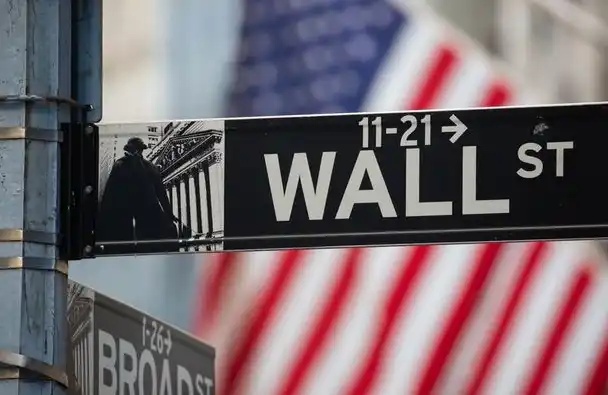Kraken Takes the Baton from FTX on the Unfinished Road: Stock Tokenization Aims for Trillion-Dollar Market
Original Title: "Kraken Enters the Stock Tokenization Market, Why Are Trading Platforms Rushing to Seize This Track?"
Original Author: 1912212.eth, Foresight News
On May 22, the fully cryptocurrency exchange platform Kraken announced a partnership with Backed Finance to launch a tokenized stock and ETF trading service called "xStocks," covering over 50 U.S.-listed stocks and ETFs including Apple, Tesla, Nvidia, and more. In recent years, the integration of blockchain technology and traditional finance has been accelerating, with cryptocurrency trading platforms leading this transformation. What used to be a movement for tokenizing the U.S. dollar and government bonds is now being pushed towards U.S. stocks by trading platforms?
Strategic Expansion
Founded in 2011, Kraken is one of the world's oldest cryptocurrency exchange platforms, known for its security and compliance. In recent years, as competition in the crypto market intensifies, Kraken has been expanding its business boundaries. In 2024, Kraken acquired the futures trading platform NinjaTrader and launched a traditional trading service for over 11,000 U.S. stocks and ETFs in some states in the U.S.
Tokenized stocks refer to transforming the ownership of traditional stocks or ETFs into digital tokens through blockchain technology, with each token representing a fraction of ownership of the underlying asset. These tokens can be traded 24/7 on the blockchain, breaking through the traditional stock market's trading hours and geographical restrictions. Kraken's xStocks is based on the Solana chain and is planned to be open to non-U.S. clients, covering European, Latin American, African, and Asian markets. Backed Finance is responsible for acquiring and custodianship of the underlying stocks, ensuring that each token is pegged 1:1 to real assets, and holders can redeem the cash value of the tokens at any time.

This move is not an isolated event. In 2025, global cryptocurrency exchange platforms are accelerating their penetration into traditional finance. For example, Bybit recently announced support for trading 78 global high-quality stock assets with USDT, covering tech giants (such as Microsoft, Google), consumer goods companies (such as Coca-Cola), and energy companies (such as ExxonMobil). Users can trade using the stablecoin USDT, enjoying the benefits of low thresholds and high liquidity. The industry trend indicates that tokenized assets are becoming a bridge between cryptocurrency trading platforms and traditional finance.
FTX and Binance's History of Tokenized U.S. Stocks
The concept of tokenized stocks is not a new phenomenon. As early as around 2020, cryptocurrency exchanges began to dip their toes into this area, with FTX and Binance being the most representative examples. FTX, founded in 2019, was once the world's third-largest cryptocurrency exchange known for its innovative products. In 2020, FTX introduced tokenized stock trading, allowing users to trade digital tokens of US stocks such as Tesla and Apple on its platform. These tokens were provided by FTX's Swiss subsidiary, Canco GmbH, and were backed by real stocks held by third-party brokers. FTX's tokenized stocks supported fractional trading, enabling users to purchase partial stocks for as low as $1, significantly reducing the investment threshold. Furthermore, FTX also experimented with tokenized ETFs, such as the SPDR S&P 500 ETF (SPY).
However, FTX's tokenized stock business was constrained by compliance issues and market volatility. In November 2022, FTX filed for bankruptcy due to improper fund management and a fraud scandal, leading to the termination of its tokenized stock business. Nonetheless, FTX's attempt demonstrated the market demand for tokenized stocks, especially among emerging markets and young investor groups.
In 2021, Binance also launched tokenized stock trading, initially including stocks such as Coinbase and Tesla. These tokens settled in Binance's stablecoin BUSD, supported fractional trading, and aimed to provide a convenient avenue for global users to invest in US stocks. However, Binance's tokenized stock business quickly encountered regulatory resistance. Financial regulatory bodies in multiple countries questioned its compliance, suggesting that tokenized stocks might bypass traditional securities market regulations. That same year, Binance announced the termination of this business and refocused on its core cryptocurrency exchange.
The experiences of FTX and Binance illustrate that while tokenized stocks are technologically feasible, they face challenges in terms of compliance, asset custody, and market acceptance. With the launch of xStocks, Kraken has clearly learned from past lessons, emphasizing collaboration with regulatory agencies and ensuring asset transparency and security through Backed Finance.
Why Are Trading Platforms Interested in Tokenized Stocks
Cryptocurrency exchanges are actively exploring tokenized stocks, driven by both technological advancements and market and strategic considerations. As of April 2025, the total market capitalization of US stocks is approximately $52 trillion, accounting for over 45% of the global stock market size. With such a massive market share, various trading platforms are eager to expand their user base and tap into the traditional financial market. The user base of cryptocurrency exchanges mainly consists of young, risk-tolerant investors, but the scale of the traditional financial market far exceeds the crypto market. Tokenized stocks provide trading platforms with an entry point into traditional finance, attracting traditional investors interested in stocks and ETFs. For example, Kraken's xStocks targets non-US clients and precisely targets the growing demand for US stocks among investors in emerging markets who are constrained by traditional channels.

Furthermore, the core advantage of blockchain technology lies in its decentralization, transparency, and efficiency. Tokenized stocks leverage blockchain to enable 24/7 trading, instant settlement, and low-cost operations, addressing issues such as limited trading hours in traditional stock markets and high intermediary fees. Moreover, blockchain supports fractionalized trading, allowing small investors to participate in high-value asset investments, enhancing financial inclusivity.
In the context of intensifying competition among cryptocurrency exchanges, tokenized stocks have become a weapon for differentiation. Kraken's xStocks not only provides trading functionality but also allows users to use tokens as collateral for DeFi protocols, enhancing asset liquidity and use cases. This cross-domain integration offers users more diversified investment options and can strengthen the ecosystem stickiness of trading platforms.
Impact on Traditional Stock Trading Platforms

The tokenized stock business of exchanges like Kraken poses a certain challenge to traditional stock trading platforms (such as Nasdaq and NYSE) while also bringing opportunities for collaboration and transformation. Traditional stock trading platforms usually operate within specific hours on workdays, and cross-border investments involve high fees and settlement periods. The 24/7 trading and instant settlement features of tokenized stocks directly challenge the operational model of traditional trading platforms. Especially in emerging markets, investors may prefer to gain exposure to U.S. stocks through cryptocurrency exchanges rather than traditional brokers.
Facing the impact of blockchain technology, traditional trading platforms are not without countermeasures. Institutions like Nasdaq have begun exploring the application of blockchain in securities settlement and clearing. For example, Nasdaq has collaborated with R3 to develop an asset management platform based on the Corda blockchain. In the future, traditional trading platforms may collaborate with cryptocurrency exchanges to launch their own tokenized products or provide more efficient trading services through technological upgrades.
The rise of tokenized stocks has prompted regulatory bodies to reassess the compliance framework for blockchain finance. This provides traditional trading platforms with an opportunity to collaborate with regulatory agencies to maintain market fairness and stability by setting industry standards. For example, the recent moderation of enforcement actions by the U.S. SEC against cryptocurrency exchanges demonstrates the regulatory sector's open attitude toward blockchain technology innovation.
Conclusion
The evolution of Kraken's xStocks, Bybit's USDT stock trading, and early attempts by FTX and Binance collectively outline the trajectory of tokenized stocks. This trend is not only a product of the integration of blockchain technology and traditional finance but also a microcosm of global investment diversification and technology-driven transformation. For investors, tokenized stocks offer a more flexible and cost-effective asset allocation method; for trading platforms, it is a strategic weapon to seize market share and engage in differentiation competition; for traditional stock trading platforms, it is both a challenge and an opportunity for technological upgrade and market expansion.
However, the widespread adoption of tokenized stocks still faces multiple challenges in terms of compliance, technology, and market education. Exchanges such as Kraken need to find a balance between innovation and regulation to ensure asset security and user trust. In the future, with the maturity of blockchain technology and a clearer regulatory environment, tokenized stocks are expected to become a key part of the global financial market.
Welcome to join the official BlockBeats community:
Telegram Subscription Group: https://t.me/theblockbeats
Telegram Discussion Group: https://t.me/BlockBeats_App
Official Twitter Account: https://twitter.com/BlockBeatsAsia
 Forum
Forum OPRR
OPRR Finance
Finance
 Specials
Specials
 On-chain Eco
On-chain Eco
 Entry
Entry
 Podcasts
Podcasts
 Data
Data


 Summarized by AI
Summarized by AI







